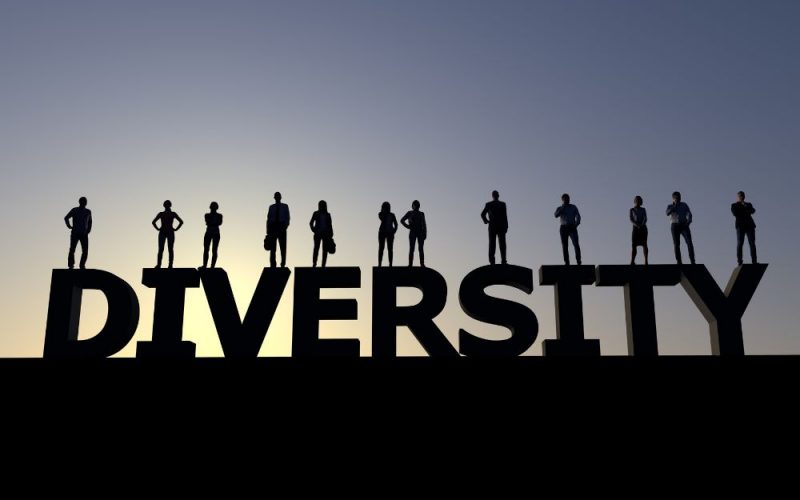In the face of negative stereotyping against Islam and Muslims in the post 9/11 world, it is very important for Muslims to return to the pluralistic vision of the Quran and establish cooperative dialogue and relations with other religions in their communities.

A dialogue is also necessary to learn about the beliefs of other people. The text books that deprecate other religions and inculcate abhorrence of Christians, Jews, and Hindus, also need to be revised or replaced. Our differences and disagreements are not to be feared, rejected, or stamped out. God wants us to use our differences to learn, through dialogue, about ourselves, about others, and about truth.

In my upbringing and subsequent laborious studies, Islam comes across as a gender, racial, and religiously egalitarian religion. A religion that teaches that all human beings are completely equal in God’s sight and are created as such and that all human beings are endowed with consciousness and wisdom through which he or she can know God personally. The true essence of Islam only emerges after one strips away the cultural, ethnic, and ideological build ups and dross. However the Islam I have found practised is very different in that distinctions based on race, creed, class, religion, and gender occur all the time in the societies that claim to be Muslim models.
In my upbringing and subsequent laborious studies, Islam comes across as a gender, racial, and religiously egalitarian religion. A religion that teaches that all human beings are completely equal in God’s sight and are created as such and that all human beings are endowed with consciousness and wisdom through which he or she can know God personally. The true essence of Islam only emerges after one strips away the cultural, ethnic, and ideological build ups and dross. However the Islam I have found practised is very different in that distinctions based on race, creed, class, religion, and gender occur all the time in the societies that claim to be Muslim models.

Islam and the Quran are clearly appreciative of diversity and dissimilarity -in creation, culture, and beliefs- within human world. Discarding the pre-Islamic tribal culture inculcating tight groupings based on family and lineage the Quran describes all human beings as part of one super unit which is humanity. It addresses the totality of humanity as ‘Bani Adam’ (children of Adam) in several places. For example the following verses from the Quran endorse the principle of diversity as an essential element of the scheme of creation.

“O ye who believe! Let not some men among you laugh at others: it may be that the latter are better than the former. Nor let some women laugh at others: it may be that latter are better than the former. Nor defame nor be sarcastic to each other, nor call each other names…….”
(Sura Hujrat, verse 11)
“O mankind! We created you from male and female and made you into nations and tribes, that ye may know each other (not that ye may despise each other). Verily, the most honoured of you in the sight of Allah is he who is the most righteous of you. And Allah has full knowledge and is fully informed.”
(Sura Hujurat, verse 13)
“If thy Lord had so willed, He could have made mankind One People: but they will not cease to be diverse.”
(Sura Hood, verse 118)
In the first verse the Quran upholds unity by exhorting its adherents to respect the dignity of all human beings. The next two verses affirm the diversity among human beings through nations and tribes. The Quran recognizes and respects the facets of identity determined by these divisions forming smaller and larger collectives of humankind. While the Quran conveys respect for everyone, it does not confer nobility or higher worth upon any group or ethnicity. Instead the single evaluative standard for the Quran remains moral consciousness of God (taqwa).
In verse 99 of Sura Younus the Quran explains that if it had been God’s Will to not to grant free will to humankind, He could have made all mankind alike and all would then have Faith. Thus the men of Faith must guard against the temptation of forcing Faith by any means of compulsion. Hence the Quran upholds diversity and tolerance as part of the Divine Will. The Quran sees disputations in the matter of religion as futile and urges its adherents to find common grounds of belief through civility, compassion, sincerity, and a genuine concern for the good of others. This also reflects in the following verse from the Quran as it lays down the code for Muslims’ conduct with the followers of other Abrahamic religions.
“And argue ye not with the People of the Book, except with means better than mere argument, apart from those among them who inflict wrong and injury upon you. Tell them that we believe in the Revelation which has come down to us and in that which came down to you: our Allah and your Allah is One and it is to Him we submit.”
(Sura Ankaboot, verse 46)
As mentioned above, the Quran describes that God could have kept us all alike but He chose to give us diversity in religion, language, culture, colour, and race to test our capacity for right conduct and for harmony and peace.
“….. To each among you have we have given a law and a way of life. If Allah had so wanted He would have made you a single people (professing one faith and following one law) but He wished to test you in what He has given each of you. So excel in good deeds. To Allah will you all return in the end and then He will show you the truth of the matters in which you disagreed.”
(Sura Maida, verse 48)
“From among Allah’s signs are the creation of heaven and the earth and the difference of your tongues and the variation of your colours.”
(Sura Rum, verse 22)
The Quran’s respect for diversity in tribal, ethnic, national, and religious differences is at variance with the Biblical depiction of the Tower of Babel, in which God punishes the human race for competing with God by distributing it into different groupings with mutually incomprehensible languages. The Quran also suggests that human nature has also been created diverse in inward disposition and personality and not just in language, colour, and creed. {“… Everyone acts according to his or her own disposition.” Sura Bani Israel, verse 84}


There is a history of Muslims, Jews, Christians, Hindus, and members of other faiths living together in harmony in a pluralistic society under the Muslim rule. As I wrote in a previous essay, let’s take a look at the major tendencies of a society that conforms to the spirit of the Islam’s ethics. The first thing that comes to mind was the exceptional ethnic and religious diversity that existed in the early centuries of Islam; this was unknown to other civilisations of those times. The Muslims from a diverse origin used to live in perfect harmony with the rest of the population (dhimmis), as the Jews and Christians remained loyal to their faith and were free to fulfil their respective religious obligations. They were not subject to any pressure to abjure their faith and to embrace Islam. Contrary to what would happen quite a bit later, the non-Muslims benefited from a protection that the outsiders did not find in any other society. The Prophet had set the example in his life, when he used to take his allies and his hosts under his wings and would not allow anyone to humiliate them or to treat them harshly. Moreover, these Jews and Christians adopted Arabic language and effectively contributed to the culture of the Islamic society. They were perfectly integrated, more than a thousand years before the Western societies, which after many twists were able to produce the harmony that had once existed in the societies of Baghdad and Cordova. These dhimmis had a special status that guaranteed them a complete protection. They were not only considered as protégés but also as allies. They were described by a term that meant ‘people of the pact’. They could accede to high posts in the State.

Some would become ministers. Nourished by strong Islamic culture, one of the great Jewish thinkers, Maimonides, found the inspiration in Averroes to renew the links between faith and reason in Judaism. A few centuries later Levinas –under the influence of German philosophy- would do the same to give scriptures a new hermeneutic. Evidently, these ‘allies’ were subject to taxes, as were the Muslims themselves, they probably had an advantage in that their tax liability consisted of fixed amounts, whereas Muslims were subject to zakat which is proportionate to resources. Thus Islamic society is pluralistic in character, allowing harmonious cohabitation of religions.
Islam respects all religions. When Caliph Umar arrived in Jerusalem after the conquest of the city by the Muslims in 638, he was given a tour of the sites by the Christian Patriarch of Jerusalem. As the time for prayer approached ruing the tour, Umar asked for a place where he might offer his prayers. The Patriarch offered Umar the opportunity to pray where he stood in the Church of Holy Sepulchre. Umar turned down the offer saying where he, the first Muslim ruler in Jerusalem, would offer his prayers, his followers would build a mosque and that he did not want that spot to be with a place of importance to Christians. Thus he prayed outside of the church across the street at a spot where a mosque, called the Mosque of Umar, still stands opposite the Church of the Holy Sepulchre. This shows Umar’s respect for Christians and their places of worship.
Hence, Islam urges its followers to engage compassion, acquire knowledge, and assimilate wisdom regardless of origin and creed. In its early centuries the Muslim civilization was the vanguard of human progress because it was not reluctant to acknowledge truth and to acquire knowledge from whatever source – Muslim or non-Muslim, past or present. Ali, the fourth Muslim Caliph and a highly revered figure by all Muslims, said that one should evaluate a discourse based on what it says and not who says it. The exclusivists, who now seem so rampant and powerful in Muslim thought and society, only became a potent force in the wake of Mongol onslaught and well over six hundred years after the advent of Islam.








